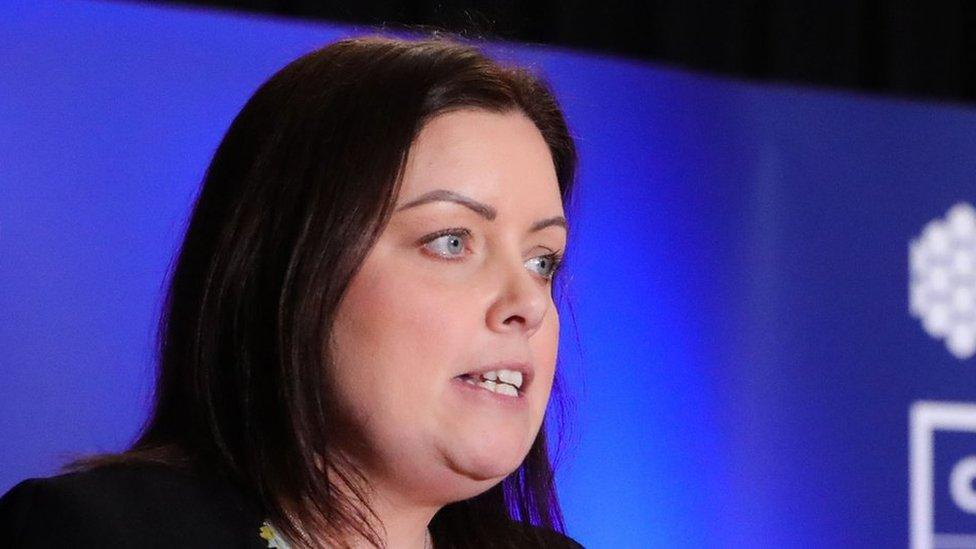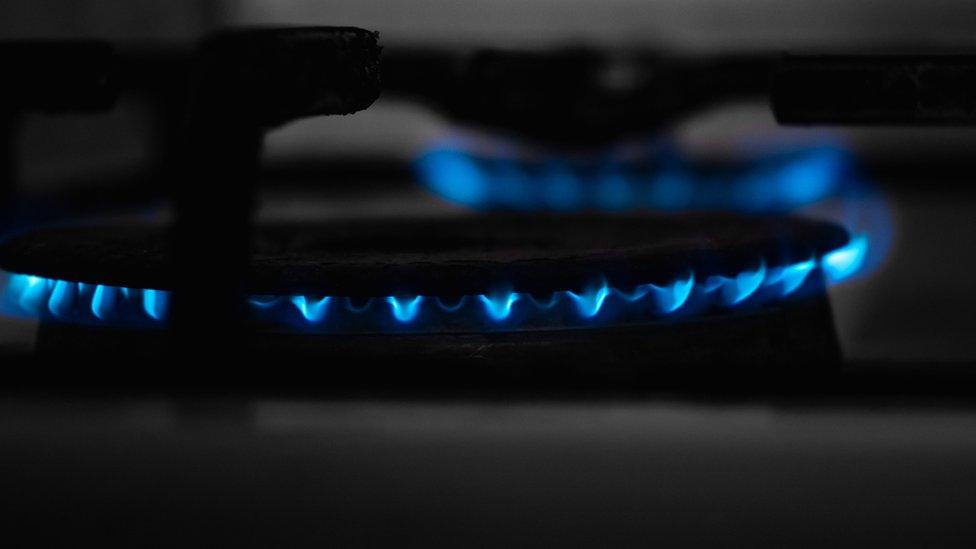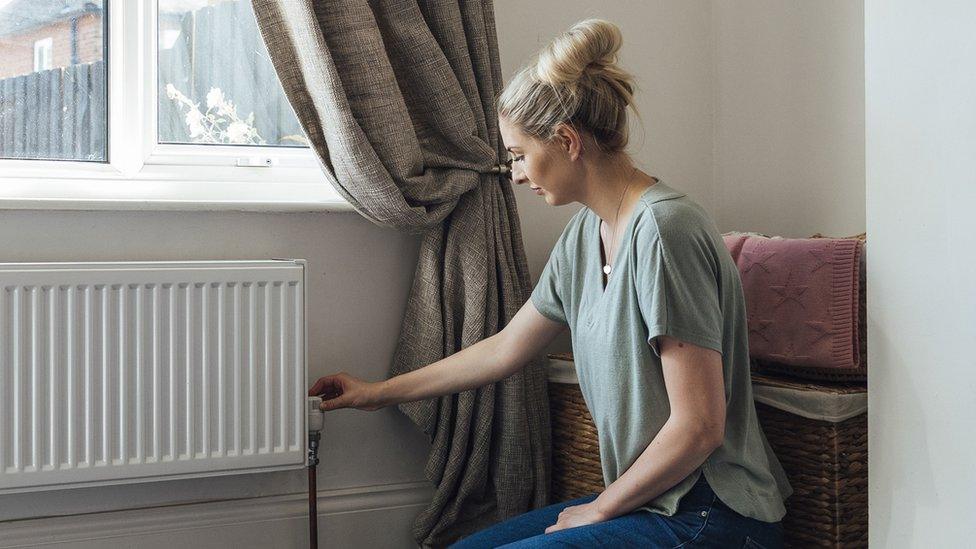Energy bills: Community centres at risk of closure, warns minister
- Published

Deirdre Hargey says that some centres were under "severe" financial strain and faced "potential" closure without government intervention
Community centres in Northern Ireland are at risk of closure because of the soaring costs of running them, the minister for communities has warned.
Deirdre Hargey said people are turning to their local centres in increasing numbers in order to save money on light and heating at home.
But she said the energy costs faced by these centres are now "unsustainable."
She called for a pandemic-like approach to tackle the overall "emergency" caused by the cost of living crisis.
The minister told the BBC she has visited community centres across Northern Ireland and heard the concerns of women's groups and childcare organisations who depend on the facilities.
"That pressure is real. Their bills, in terms of gas and electric is more than doubling and that's just not sustainable," the minister told the BBC's Evening Extra programme.
"They are seeing an increased pressure with families coming towards them to seek help, to seek assistance, but also to seek a place where they can stay for that day or for the afternoon until maybe their children get home."
She told the programme that some centres were under "severe" financial strain and faced "potential" closure without government intervention.
"We're trying to see what we can do. I did release a payment for hundreds of organisations recently, but obviously these organisations get funding and deliver services from right across government, so we need a whole government approach to this, but we also need additional monies."
Ms Hargey said politicians were "limited" in what they could do because of the lack of a fully functioning devolved government at Stormont.
Northern Ireland has been without a functioning power-sharing executive since February, when the Democratic Unionist Party (DUP) pulled its first minister of his post in in protest over the post-Brexit trading arrangement known as the Northern Ireland Protocol.
Fresh elections to the Northern Ireland Assembly were held last month, but the DUP has refused to nominate a Speaker or return to the executive until their concerns over the protocol are resolved.
"I'm not going to allow the DUP or anybody else, in terms of boycotting the executive, to allow these organisations to suffer," Ms Hargey said.
The minister called for additional measures to tackle the overall cost of living crisis.
She suggested tax changes such as a cut in the VAT on energy bills "at source" and an "increased windfall tax" on energy firms, in additional to the one announced in the last Chancellor's statement.
"We need to be doing more, this needs to have the same approach that we did with the Covid pandemic," she said.
"This is a global emergency around the cost of living where people are choosing to heat or eat, and this will have an impact in terms of, potentially, deaths because of that as we move into the winter months."
Heating bills
Community worker in the Cathedral Youth Club, Fountain estate in Londonderry, Jeanette Warke, said they had opened a café to hopefully sustain some of the funding.
She added but "you can't charge much in a community café and people haven't got the money more ".
"They might be coming in just for a cup of tea and a sandwich, and the heat more or less," she said.
"They can't put the heating on during the day they say, so they can come over to us and put the heating on for a couple of hours at night," she added.

Gas and electric bills are putting centres under pressure
She said that the centre's heating bill had doubled and the electric bill had doubled.
"£1,500 for the last electric bill - that is ridiculous but we are careful. You are going around like a sergeant major turn off that light," she added.
Community relations worker at Shankill Women's Centre in Belfast Eileen Weir said centres were "already closing their doors and only opening two days a week, from five days to two days they just can't hold out to the bills"
"There are no wages coming into those centres, these are woman in these communities trying to do the best for their communities," she added.
Related topics
- Published15 June 2022
